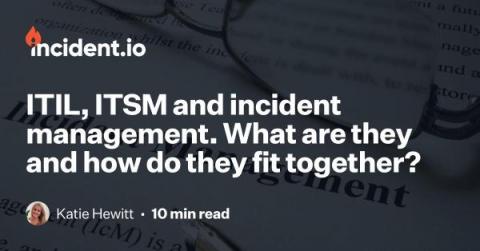5 best incident management tools of 2023
Put simply, managing incidents—big or small—is good for business. Not only is it a regulatory requirement, but also a factor in your profits. Your customers expect smooth operations, good customer service and protection. A dedicated incident management tool can help protect all of these. While many may think of incidents as an IT or DevOps issue, it’s hard to over emphasize that they can happen in any department.











